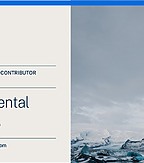Article | 8 November 2024
Carbon Capture and Storage (CCS) in Sweden

Sweden has considerable potential for capture and geological storage of CO2 and has now built a strong legal framework for CCS (Carbon Capture and Storage), including the possibility to apply for significant state aid. Setterwalls monitors on the latest developments in this area and reports on them in this article.
The legal process
Geological storage of CO2 has been permitted in Sweden since 2014, when the Regulation (2014:21) on the geological storage of CO2 came into force. Despite the regulation reaching its tenth anniversary, the first CO2 storage facility is yet to be established in the country. However, pilot projects focused on CO2 capture have been successful, and numerous stakeholders are showing interest in initiating further projects.
The legal process for establishing a CO2 storage facility is complex, involving applications for a number of permits and requiring a detailed assessment of the geological formation’s suitability as a storage site. The assessment method is thoroughly regulated and includes risk assessments, exposure evaluations, and identification of potential leakage effects.
CO2 capture and storage require an environmental permit under the Swedish Environmental Code. Additionally, a permit under the Act on the Continental Shelf will typically be required for CO2 storage. For storage amounts exceeding 100,000 tons, applications for environmental permits are processed by the Land and Environmental Court and must be approved by the Swedish government.
Strategic net-zero projects related to CO2 storage are covered by the EU regulation 2024/1735 on establishing a framework of measures for strengthening Europe’s net-zero technology manufacturing ecosystem (the Net-Zero Industry Act) which came into force this summer. A project that is recognized as a strategic project under the regulation will receive special deadlines for certain permit processes. In Sweden, the Geological Survey of Sweden (SGU) is the competent authority for the recognition of net-zero projects related to CO2 storage under the regulation.
Locations for storage of CO2
In Sweden, storage facilities with capacities above 100,000 tons are only permitted under the seabed, mainly within Sweden’s Exclusive Economic Zone. While Sweden currently does not have any operational CO2 storage facilities, studies show that the local geology provides considerable potential for storage sites mainly in the southeast part of the Baltic Sea and southwest Scania. The Swedish government has assigned the SGU to further investigate suitable locations for permanent CO2 storage. The results of this investigation are expected to be presented in March 2026.
To further facilitate permanent geological storage of CO2, Sweden entered into bilateral agreements with Norway and Denmark in April this year. These agreements concern the cross-border transportation of CO2 for the purpose of permanent geological storage. Additionally, the Swedish Energy Agency has been tasked with preparing similar agreements with other countries that have the commercial capacity to store CO2.
Financial aid
Sweden is now also especially well-positioned for bio-CCS as the government enacted Regulation (2024:626) on state aid for the capture, transport, and storage of biogenic CO2 came into force in August this year. The new regulation establishes a framework for state aid through reverse auctions, to incentivise CO2 capture and storage from biofuel combustion.
Through the reverse auction system, the Swedish Energy Agency will award funds to companies offering CO2 capture, transport, and storage at the lowest cost per tonne whilst also fulfilling certain other requirements. The aid is aimed at facilities located in Sweden, both during investment and operations phases. The Energy Agency can allocate 36 billion SEK between 2026 and 2046. In the first round, applications for aid under the Regulation can be submitted until 21 November 2024 and there has already been great interest in this. The Energy Agency aims to make a first allocation before the end of this year.
Besides the bio-CCS aid, financial aid for CCS-projects in Sweden is available through the Swedish government’s Industrial Leap program (Industriklivet), also managed by the Energy Agency. This program provides funding for research, feasibility studies, pilot and demonstration projects as well as investments. Aid for CCS-projects is also available through the EU Innovation Fund and the international Clean Energy Transition Partnership (CETP).
To conclude
Sweden has now developed a robust regulatory and financial framework for CCS and bio-CCS initiatives. This includes investigations of suitable storage locations, international cooperation, and financial support through various programs. Setterwalls is following the development within this vital area. You are welcome to contact us for advice on issues related to CCS and/or other net-zero initiatives.
The content in this article is of informative nature and does not constitute legal advice for a particular case.
Contact:
Practice areas:


